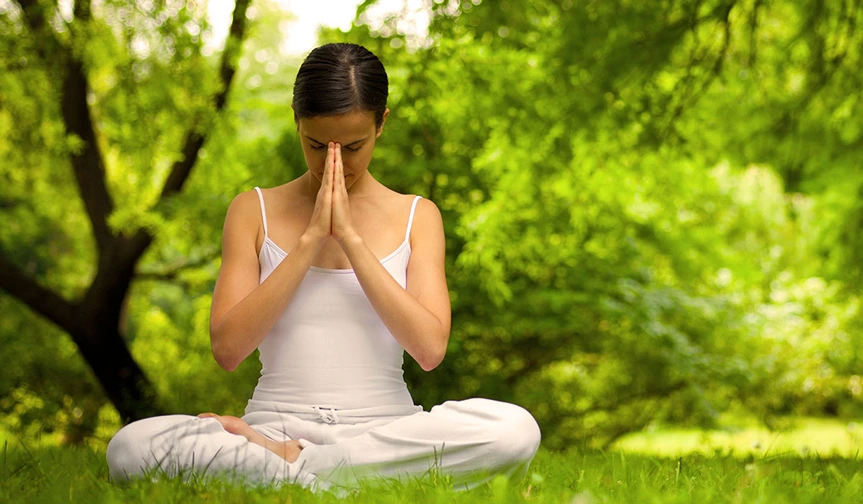Ayurveda and Mental Health: Finding Balance and Serenity
Even though avid interest in treating the disorders of the mind is slowly becoming the norm, Ayurveda has a complete approach that provides mental steadiness and calmness. Ayurveda remedies are at the heart of addressing pressing mental issues because, through the philosophy of Ayurveda, it heals the soul and nurtures the mind and body. This blog will discuss how the management of the human mind can incorporate Ayurveda.
Ayurvedic Psychology: The Three Gunas
In Ayurveda, the mind is influenced by three fundamental qualities known as gunas:
● Sattva (Purity): Sattva signifies purity, enlightenment, and equilibrium. A Sattvic mind is free from stress and agitation.
● Rajas (Activity): Rajas are related to passion and ambition, which can lead to restlessness. The above indicates that when rajas are performed in excess, tension, stress, and mental oscillation result.
● Tamas (Inertia): Tamas is a condition characterized by obscurity, lack of knowledge, and sleepiness. A person with a tamasic mind is likely to become depressed.
The Management of the Three Gunas
● Increasing Sattva: Bathe to be physically clean, tongue to be empty before chanting mantras, and have a clean mind by meditation and eating Sattvic food, which mostly includes fresh fruits, vegetables and grains.
● Managing Rajas: Information reduction is achieved by avoiding conditions that produce high levels of stress, learning how to relax, and getting creative.
● Reducing Tamas: Alleviating symptoms of sluggishness and despair by adhering to the laid down sleep, practicing, and not eating junk food high in sugar and fat content.
Pervasive Ayurvedic Methodologies for Mental Health
Meditation and mindfulness are core practices in Ayurveda that help cultivate sattvic mind:
● Daily Meditation: Some of the suggested exercises include Tratak, which is also known as candle-gazing, and Mantra meditation.
● Pranayama: Techniques such as Nadi Shodhana and Bhramari are used to calm down the mental frequencies.
Ayurveda offers a range of herbs that support mental wellness: Ayurveda offers a range of herbs that support mental wellness:
● Brahmi: Copper is one of the most important factors in the formation of desired brain functions, including but not limited to intelligence, memory, and concentration.
● Ashwagandha: Proven elect antioxidant, Ashwagandha, reduces anxiety and stress and diminishes the quality of sleep.
● Shankhapushpi: It was used earlier to enhance brainpower, lessen tension and anxiety, and enhance focus.
Meals and Eating Habits
● Sattvic Diet is New, organic, and sattvic products such as milk, ghee, fruits, vegetables, whole grains, etc., are to be added to enhance the status of the mind and enable it to achieve ‘shanti’.
● Rajasic and tamasic foods are inflammatory, fried, and stale, and their effect renders the consumer mentally active. However, one should opt for cool, relaxing, and shelter foods at least two hours before bedtime.
Daily rituals
● Oil Pulling (Gandusha): It is good for detoxifying the body and reduces mental tension when one oil gargles.
● Abhyanga (Self-Massage): Massaging with warm essential oils. Sesame oil or coconut oil are nervine, and if used in massages, they tend to relax the nervous system.
● Jal Neti (Nasal Cleansing): Cleansing the nasal passage to restore the five principles of air with particular reference to prana to enable clear thoughts and focus.
Evening Rituals:
● Winding Down: Self-soothe by enjoying quiet moments such as reading a book or magazine, light exercise such as yoga, or listening to soft music.
● Herbal Teas: Drinking beverages prepared from herbs such as chamomile.
Yoga for Mental Health
Yoga, with Ayurveda, plays a significant role in balancing the mind and emotions-
● Asanas (Postures): Such yoga asanas as Shavasana (Corpse Pose) and Balasana
(Child’s Pose) serve to calm down and soothe one’s mind and the human body.
● Pranayama (Breathwork): Yogic breathing, such as Kapalabhati, or ‘Skull-Shining Breath,’ and Ujjayi, or ‘Victorious Breath,’ helps decrease mental dullness.
● Meditation Practices: Mindfulness meditation before or after yoga can also enhance mental relaxation and concentration.
Conclusion
Ayurveda has far more to tell about strategies for dealing with mental disorders compared to what one gets from contemporary medical models of treatment. The goal is to raise awareness of these practices and show the social importance of practising them for enhanced mental health and to achieve connection with oneself, hence a life of clarity, peace and well-being.


